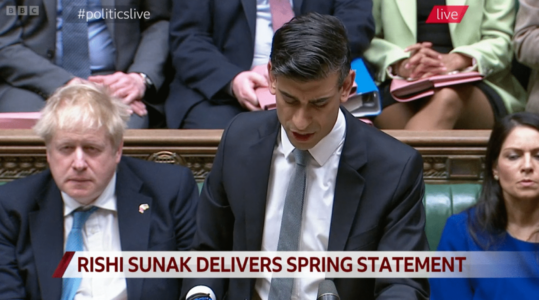Jasmine Birtles
Your money-making expert. Financial journalist, TV and radio personality.


Highest interest rates in how long?…
Another day, another interest rate hike. Say it quickly and 0.25% doesn’t sound a lot, but it’s the 14th consecutive increase since December 2021, taking the Bank of England base rate to 5.25%. This means only one thing for most of us: yet more belt tightening.
The rationale behind raising interest rates to their highest level for 15 years is that this makes it more expensive to borrow money, therefore people have less to spend, reducing both demand and inflation.
Prices rose by 7.9% in the year to June, according to the Office for National Statistics (ONS) which, on the plus side, was lower than the 8.7% in the year to May, and down from 11.1% in October 2022. However, it’s still four times the Bank’s 2% target.
Strong demand for workers, with more than a million unfilled vacancies, is pushing wages higher. Meanwhile, persistent food inflation and a rise in the cost of services, which has only just reached a peak, have all been a constant barrier to bringing down inflation.
Andrew Bailey, Governor of the Bank of England, says it is vital that inflation falls back to 2% – something it is unlikely to do for another two years.
Policymakers have been able to rule out fears of a recession, and with energy prices expected to fall over the rest of the year, it will bring inflation below 5%, meeting Prime Minister Rishi Sunak’s pledge to halve it from its 10.5% peak at the start of 2023.
The UK is not alone. Since Covid restrictions eased and consumer spending increased, inflation has shot up worldwide.
Companies struggled to get goods to sell, and oil and gas costs rose dramatically with Russia’s invasion of Ukraine. As a result, interest rates increased for everyone. But the UK now has the highest rate in the G7, a group of the seven largest advanced economies, which includes Canada, France, Germany, Italy, Japan and the USA.

A third of households have a mortgage and with 1.4 million people on tracker or standard variable rate (SVR) deals, they will see an immediate increase in their monthly payments. The 0.25% rise will add an extra £24 a month to the average tracker while an SVR will face a £15 jump.
Three quarters of mortgage customers hold fixed-rate deals and while their monthly rates won’t change immediately, higher interest rates mean house-buyers, or the 1.8 million people expected to remortgage this year, will have to pay a lot more than if they’d taken out the same mortgage a year ago.
An average two-year fixed deal which was 2.29% in November 2021 is now well above 6%. Dubbed the ‘mortgage bomb’ it means people have seen their monthly payments soar by hundreds of pounds, with the IFS, a politically independent think tank, warning rising interest rates could see the disposable income of 1.4 million mortgage holders fall by 20%.
A typical mortgage holder coming to the end of a fixed-rate deal in the second half of this year will see their monthly payments rise by about £220.
Desperate times may call for desperate measures, but while it’s easy to turn to credit cards and loans to help you through a bad patch, their charges are also influenced by the Bank of England base rate. They were already high at 21.86% for an overdraft and 20.13% on credit cards, and lenders could put prices up even further.
If you are fortunate enough to have savings, then an interest rate rise should be passed on to customers and enable you to make more from your hard-earned cash.
Nationwide and HSBC were among the first providers to improve deals. Nationwide’s Triple Access Online Cash ISA will now pay 4.25% in annual interest, up from 3.5%. While HSBC is increasing rates on its Premier Savings Account by 0.25% to 2.25%.
But it is important to shop around. While saving accounts are paying more, even those with the best interest rates aren’t keeping up with inflation. And the UK’s financial watchdog recently warned that banks will face “robust action” if they offer unjustifiably low savings rates to their customers.
Laith Khalaf, the head of investment at A J Bell, is sceptical about the Bank of England’s high interest approach to tackle inflation.
“Its own numbers show that more interest rate hikes will make almost no difference to inflation in the medium term, but it will inflict more pain on consumers and businesses, and in particular mortgage holders.
“Sometimes doing nothing is the hardest approach, but there is increasing evidence that’s the path the Bank should now be following.
“Based on their own projections, inflation will fall to 1.5% in three years’ time if the Bank hikes rates to 6% and then trims them back to 4.5%. At the same time its forecasts say the Consumer Price Index (CPI) – the price of an average basket of consumer goods and services purchased by households – will fall to 1.4% if interest rates stay where they are.
“So this supports a pause in rate increases, not least because the cost-of-living crisis is being exacerbated by high interest rates. The full effect of monetary policy takes around 18 to 24 months to ripple out into the economy, so a hiatus in rate activity would give the bank more time to assess the impact of its past actions.”

Rishi Sunak delivers his Spring Statement.
Rishi Sunak pledged to grow the economy as one of his five promises to the electorate when he became Prime Minister, but Bank of England projections show almost no growth in the next two years, less than 1%, according to Khalaf.
He adds: “Price rises of 5% for consumers are still deeply uncomfortable, especially on the back of the double-digit inflation we have seen over the last year or so. Little wonder that pressure on household finances is finding its way into wage demands, which itself is stoking a second round of inflation after the energy and food price spike.
“Meanwhile, although the housing market is on the wane, a correction rather than a crash seems most likely, even as prices have fallen at their sharpest annual rate since 2009. The one positive we can take from the UK economy is low unemployment. In the depths of the financial crisis, unemployment rose to 8%; today it sits at just 4%.”

I am so fed up of all this! I wish there was an alternative that didn’t just seem to benefit people struggling 🙁